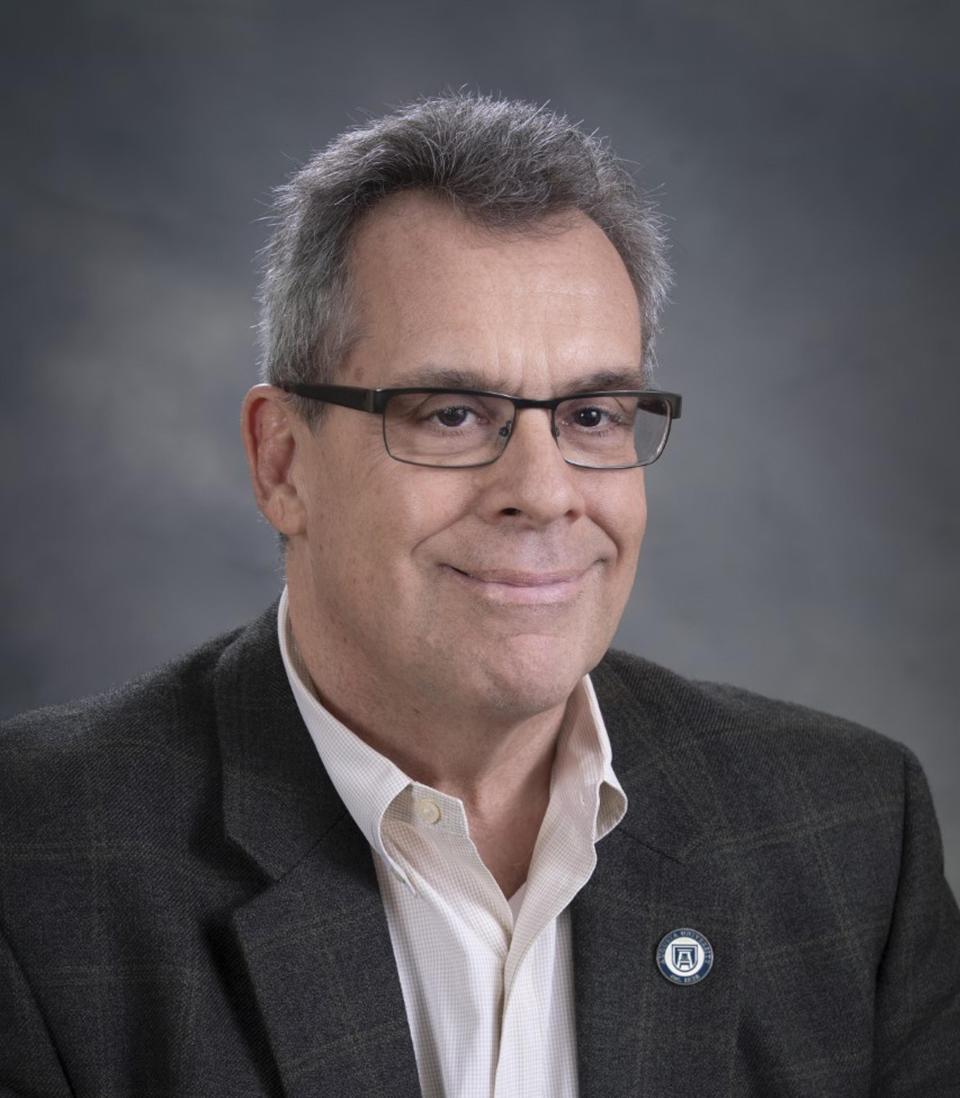Richard Franza: Five years of gratitude and lessons learned
Feb. 1 marks my fifth anniversary of moving to Augusta and starting my position as the dean of the James M. Hull College of Business at Augusta University. To be true to a resolution I shared with you in my most recent column, my goal for this column is to be reflective rather than reactive.

So, instead of reacting to achievements and failures during the past five years, I have chosen to reflect on what I have learned during this time and on those who helped make these five years enjoyable and fulfilling.
Lessons learned
“Teamwork makes the dream work.” While this quote is attributed to leadership guru John Maxwell, I first became aware of it as a slogan of many youth sports teams as my two daughters grew up in volleyball and lacrosse. I found the quote to be true for the teams my daughters played on and against. The best teams were not always the most talented individually, but certainly the ones that worked the best together.
I also found this to be true in my role as a dean of a college of business. When I first arrived at AU/Hull, I thought that I had most of the answers and I could almost single-handedly lead us to success on my own. I quickly learned that the success of our unit comes from the collaborative expertise of our administrators, faculty and staff.
All of our people bring important skills to our efforts, and my job was to deploy and empower them in a way that would maximize their contribution. I have learned to hire and retain good people. By “good” I do not just mean talented, but also team players whom others like to work with and who work well with others. Having such people in your organization attracts more people like that, making it more likely to have the “dream work”.
Listen, communicate, listen – repeat. “God gave you two ears and one mouth – use them in that ratio” was advice I remember one of the good sisters at St. William the Abbot School telling me at a very young age, but something I have not always heeded. Particularly when you are leading an organization, it is easy to fall into the trap of thinking you have the most important things to say.
I have learned time and again that the good sister was correct. The more I listen to the people around me, the smarter I get. My faculty and staff are wiser and more experienced in many areas than I am, and the feedback I get from our students is critical to us providing better programs.
In addition, listening to our local business community allows us to continually improve our curriculum to provide them a better workforce.
However, while listening is most important, communicating well is not far behind. I have learned to make sure I keep my bosses and those in my organization well-informed in a timely manner.
While it is always easy to share good news to both superiors and subordinates, it is often more critical to share “bad news” quickly and accurately. We have learned throughout this pandemic that keeping everyone informed is essential and a vacuum in communication leads to uncertainty.
Your people will be more valued the more you listen and the better you communicate to them in a timely fashion.
Play the long game. When you join a new organization as a leader, your initial thoughts are to make changes that will show your value early. Unfortunately, if you overplay the short term, you typically end up sacrificing the long term.
Therefore, most of the decisions I have made in this position have been for long-term viability and success for the college and the university. Early on, we talked to the members of our business community to determine what we could do better to deliver a better business workforce.
Armed with that critical information, we went to our faculty to take those skill sets identified by our business partners and turn it into academic curriculum. This led us to a unique undergraduate core curriculum that includes professional selling and project management courses for all of our students, along with a required internship prior to graduation.
We have also created market-driven concentrations in health care management, digital marketing, financial services and applied economic analysis. While it has taken a couple of years, these concentrations seem to be gaining traction. At the graduate level, we have added an online Master of Business Administration degree and in the near future will be introducing a MBA concentration in health care management and a joint master's degree with AU's College of Computer and Cyber Sciences.
All of this programming points to the long-term growth of college and university enrollments.
Gratitude. After five years, I am thankful for many things – in particular, my fellow administrators, faculty and staff in the Hull College. While we may not be largest college at AU, I will say our people are among the most committed. Their collegiality and commitment make it a great place to work that allows us to attract more talent.
I am grateful for the outstanding business community of Augusta that has provided us with many great partners who have allowed our students to flourish through experiential learning into rewarding business careers.
Finally, I would like to thank the people of Augusta for making this a great place to live. While no place is perfect, the concern that the people of Augusta show for one another more than makes up for any imperfections. Thank you for allowing me to serve with you!
The writer is dean of the Hull College of Business at Augusta University.
This article originally appeared on Augusta Chronicle: Richard Franza: Five years of gratitude and lessons learned in Augusta
